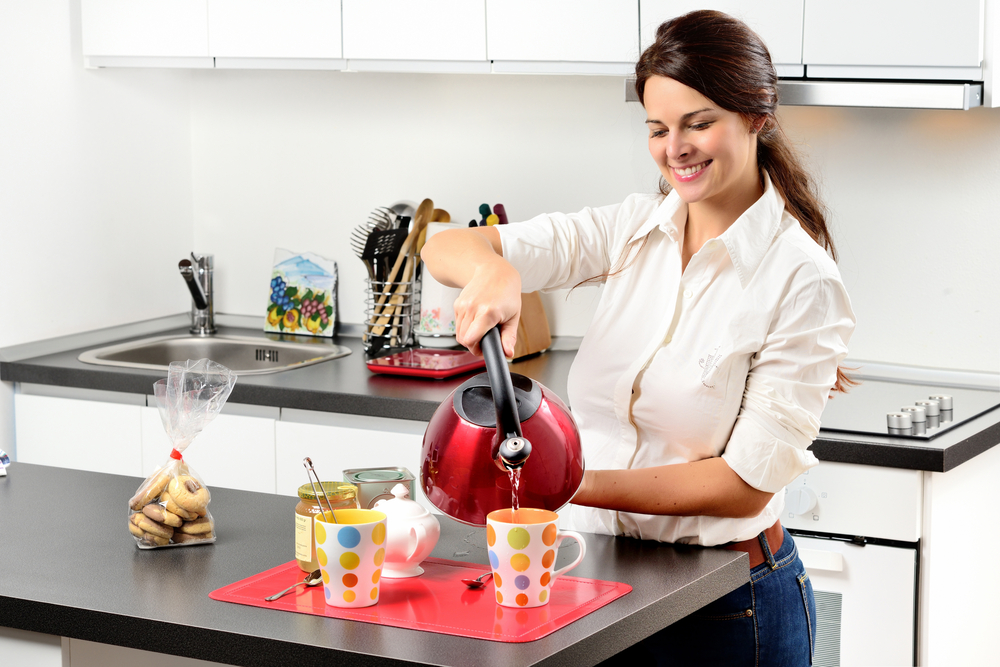
Herbal teas are distinguished for their many health benefits but what benefits do they actually have and why are they so important to our health. Read this article to find out more.
What is Herbal Tea?
Despite being called herbal tea and brewed in the same way as other tea, herbal tea is not actually a tea at all. This is because they are not made from the Camellia Sinensis bush, the plant from which all teas are made. They are actually infusions, and are properly called tisanes. Tisanes are derived from mixtures of various botanical elements like dried leaves, seeds, grasses, nuts, barks, fruits, or flowers that give them their taste and provide the health benefits of herbal teas. Unlike other standard teas, herbal teas do not contain caffeine. They are easy to drink and taste delicious. Your herbal tea may consist of one main ingredient or it may be a blend of several ingredients, designed to bring out a specific purpose, such as rejuvenation, relaxation, or relief from a specific health condition.
Herbal Tea Benefits
Firstly, it is interesting to note that, virtually, there is a vast array of herbal teas that are available on the market – each one having a specific medicinal or therapeutic benefit. However, there are other general benefits that can be gained from herbal teas. These benefits include:
- achieving a more relaxed state of mind
- supporting heart health
- aiding with relieving stomach and digestive problems
- providing cleansing properties for the body
- promoting energy and wellness
- nourishing the nervous system
- strengthening the immune system
- providing antioxidants to the body
- boosting energy levels and invigorating the body
- relieving stress
- helping to prevent colds
- stimulating the internal organs
- promoting quality sleep
- it is caffeine free and tastes delicious
Types of Herbal Tea and Their Benefits
In an herbal tea, there are several herbs that can be found, with each having a different use. Some of these ingredients include:
- Allspice – helps in soothing the common cold and relieves upset stomachs
- Anise seed – freshens the breath and aids digestion. It can also be used to soothe a cough and treat bronchitis.
- Chamomile – is known for its calming properties and is also said to contain anti-inflammatory and antispasmodic properties.
- Chrysanthemum – helps reduce body heat resulting from fever. It also helps neutralise toxins and protect against liver damage.
- Cinnamon – has a calming effect and helps to improve healthy circulation and digestion.
- Ginseng – helps the body stay healthy and stimulates vitality.
- Ginger root – is excellent for improving blood circulation, and is one of the best herbs for improving digestion and nausea, relieving lung congestion, and pain from arthritis.
- Hawthorne – increases blood flow and strengthens the heart.
- Lemongrass – contains calming properties.
- Parsley – contains diuretic properties and helps improve kidney function.
- Pau d'arco - has anti-inflammatory and antimicrobial activity against various organisms like bacteria, fungi, yeasts (such as Candida albicans), parasites, and viruses (such as herpes simplex types I and II, influenza virus, poliovirus and retroviruses).
- Peppermint – helps with stomachs and digestive issues and helps to freshen the breath. It is also good for stress relief.
- Red Clover - is used as a medicine for treating various health conditions like menopausal symptoms, cancer, mastitis, joint disorders, asthma, bronchitis, psoriasis and eczema. It is not recommended for children, pregnant or breastfeeding women.
- Rose hips – are an excellent natural source of bioflavonoids and vitamin C. They are a liver, kidney, and blood tonic, and are a good remedy for fatigue, colds, and cough.
- Sarsaparilla – promotes energy and healthy skin.
- Slippery elm – helps relieve stomach cramps and other gastrointestinal problems.
Hot to Make a Healthy Herbal Tea

When you prepare making your herbal tea, always use fresh, cold water. Do not use cookware made of aluminium as it can affect the taste. If possible, use glass, cast iron, or stainless steel. It is very helpful to use a tea strainer as it lets you create your own blends of herbs or teas, and stops the flowers and leaves from escaping into the drink.
Once the water starts boiling, for every cup of water, add one heaped teaspoon of herbs. Cover it and let the herbs to steep for 10 minutes. Do not over-steep the herbs as it can make the flavour to become too strong and taste more medicinal rather pleasant. You can use honey or lemon to enhance the flavour of your tea.
|
Do you have a natural health & wellness business? |










